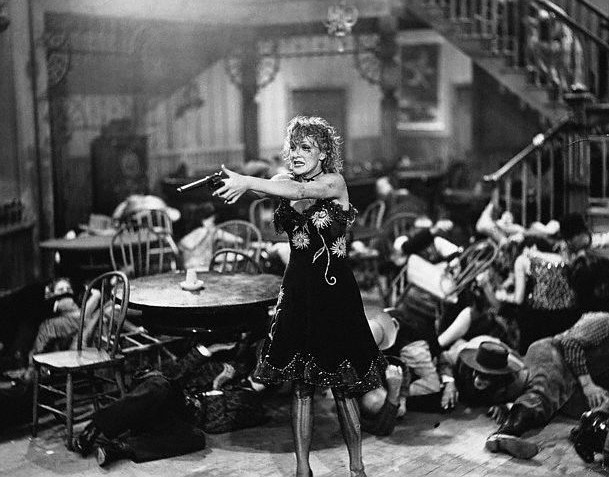I’m writing this in a bar across the street from my local jazz station’s studio, gonna sit in on a live performance there in like an hour, and ever since I read a book last week by Jon Taffer, host of the reality show Bar Rescue, I’ve been wildly critical, internally, of every bar and restaurant I visit. I’m keeping it to myself, naturally, cuz I think this book is only supposed to make me think that I understand the biz. But in my head I’m a fucking critic.

Let’s take this restaurant I’m sitting in right now as an example: the restaurant’s music comes from one of those pill-shaped speakers, it’s loud as fuck, and it’s sitting on the bar, right in your face, which is obnoxious (and not just because I brought a notebook to a bar on a Saturday night looking to get work done). I’m realizing I might never have been to a bar where music didn’t come from speakers in the ceiling (and now I know why). Also, it took like a solid two minutes to be addressed by a bar tender — not an eternity by any means but, given Taffer’s insistence on providing the customer with an otherworldly experience, I’m dragging around a feeling of entitlement like a heavy tail. Of their even-beer selection, all but three are sold out. I order a Corona. “Corona’s in the back,” the bar tender says, “and it might not be so cold.” Whatever. She disappears into the kitchen and comes back a couple minutes later with a perfectly chilled beer. So that’s good. But still, I’ve got Jon Taffer’s voice in my head (“your bar’s shit“) and as that voice is going off, riling me up, I’m trying to remind myself, “Dude, you worked at a restaurant for nine months last year. You’ve seen the other side. Why so judgmental?”
Probably the biggest frustration of working at that moderately upscale restaurant — they serve cheesecake — is that many guests seemed to think they were being waited on by superhumans, flawless cogs in a flawless machine. Indignation seemed to go through the roof whenever service was slow. A customer would walk in and see an empty table at 2 p.m. on a Saturday, the restaurant is otherwise packed, and ask why they couldn’t just take it — “you’ve got an empty table just sitting there, I don’t get it” — rather than endure the fifteen-minute wait.
I’d point out that the table was dirty, that there were globs of food and puddles of wine on it.
“That’s fine,” was the customer’s de facto response, “they can clean it while I’m sitting there, I don’t mind.”
Rather than explain how awkward and handicapping it is for a busser to clean and then set a table while people are sitting at it, or belabor the apparently unimpressive fact that there were eight people in line ahead of them for that table, I’d just say it was restaurant policy that we couldn’t sit guests at dirty tables (which is true). Then they’d ask to see a manager — and that was always good, cuz it wasn’t my problem anymore, and nine out of ten cusstomer complaints about service are dismissed as bullshit, entitlement, crazy expectations. But the confrontation with a grumpy customer would always sour my mood for at least an hour.

There were a hundred frustrations like this in almost every shift. Guests came and went with an impression that their $40 patronage afforded them total liberty with our space and services, our servers, our resources — I saw (and once, foolishly, confronted) on several occasions a middle-aged guy who just flat out stole a brick of parmesan cheese from whichever computer station was nearest. No remorse. Didn’t even pause and look around like a thief who’s mildly concerned about being caught. Just walked up to the computer station when there wasn’t a server there, grabbed the brick of cheese, and put it in his pocket. And seldom did we see any trace of concern for a server being overwhelmed, needing a minute before they came back with your refill. Even the simple deduction that, if the place is packed, service will be a little slow. The server’s weeded with six tables at once? Too bad. I want my Coke now. It’s been five minutes. Did you know it’s been five minutes? Lemme talk to a manager.
And y’know what, maybe Jon Taffer’s right when he says that it really doesn’t and shouldn’t matter to the customer. They’re here to spend money, enjoy themselves, and you — as either the server or proprietor — shouldn’t feel right about taking their money unless you can give them the reaction they’re paying for (Taffer’s thesis is that the product being sold to your customer isn’t the food or the drink, but the reaction; says that if your guests aren’t visibly reacting to the atmosphere, their dish, their service, then your’e failing).
Really off topic. Anyway, look: this essay’s about Destry Rides Again, a delightful 1939 western starring Jimmy Stewart and Marlene Dietrich (I watched a recording of this from TCM, and host Ben Menkowitz says, in the intro, that Destry marked a comeback for Dietrich after a series of flops).
The sheriff of a corrupt town called Bottleneck is murdered when he accuses a saloon owner (i.e. mob boss) of hosting rigged card games. The mayor, who frequents the bar and appears to be getting a kickback from the saloon/casino’s dealings, mourns the sheriff for about a minute before appointing the town drunk (Charles Winninger) to the position.
The town’s hoodlums clap and cheer and raise their glasses. Crime can now carry on unimpeded. Surely this drunkard can’t uphold the law.
But it reminds me: in my senior year of high school every classroom would leave its TV on throughout the day. Those TVs would run a slideshow of flyers, written announcements: club meetings being held that day, the score of last night’s lacrosse game, don’t forget to have your parents sign off on one thing or another. A slideshow of reminders for the whole school.

Anyway. In the weeks leading up to prom, when we were asked to vote for King and Queen, the nominees were listed in that slide show, every day, for about two weeks leading up to the big night. One of the nominees for prom queen, self-nominated and then widely endorsed by what was either malice or genuine affection, was a young woman with a severe learning disability (the faculty and administration, suspecting a potential Carrie White-style prom night scandal, were jacked up with nervous energy about her nomination). And this girl was very sweet, bubbly, gentle. Hugged the custodians every day. Asked the security guards if they’d enjoyed their weekends. Angelic. I don’t remember what her real name was but she latched, wholeheartedly, onto the nickname “Skittles”. It was her favorite candy. Somebody saw her eating em one day, called her “Skittles,” and she just claimed it. Started wearing t-shirts with the logo.
Angelic.

But some cunt in media services wrote her name, on the TV’s rotating flyers, as “Sweatles”. Because apart from her learning disability, Skittles did seem to have some kinda glandular problem that made her sweat like heavy rain (David Foster Wallace has a character in The Pale King who suffers a similar issue and so takes to carrying a tennis racket from class to class, hoping people will think he’s sweating from physical exertion rather than hormonal stuff). Everybody saw and remarked on the “typo” but the faculty somehow remained out of the loop until like fifth period. Then the slideshow cut off, went dark. It had been up all day. I never learned what Skittles thought about it, or if she knew, but whatever.
People cast their votes over the course of two weeks and when Skittles went to prom she found herself, at the end of the night, with a crown on her head, standing up on a platform with the cliche football star with a goofy grin and chiseled jaw. Her eyes tear-glossed and wide while she was up there but she was smiling like she knew it was meant to be.
The reason she comes to mind is because the drunk who’s appointed to sheriff in Destry is laughed at, deemed unfit for the role, and then he goes and calls his old friend Destry to town (Jimmy Stewart) to operate as deputy. Destry, a soft-spoken storyteller who doesn’t carry a gun, lives in the shadow of his father, a lawman of the last generation who’s fallen into legend for being such a badass.

The only thing that surpasses Stewart’s charm in the title role is Marlene Dietrich’s total immersion into that of the bar owner’s chief mistress, Frenchy. Dietrich sings here, beautifully, she flight and trashes a bar, leaps around and runs. It looks like an exhausting performance, the shit she does in even a single take, and now that I know that her career was in something of a decline I can kidna see how her game face, her heavybreathing persistence after something tremendously strenuous, was probably the manifestation of a serious actor digging her nails into the mountain’s edge to keep her career from falling. Adds a bit of beauty to the thing.
Whatever prosperity or accolades she got in the wake of this, they’re deserved. (It’s making me wanna pick up that Dietrich & Sternberg collection that Criterion just released — priced at a debilitating $100).
Alright, I need to wrap this up. Let’s just say that Destry Rides Again is a terrifically fun movie. If you’re not a fan of westerns I’ll tentatively say that you might still find yourself on board for this one.
Give it a shot.
6 comments